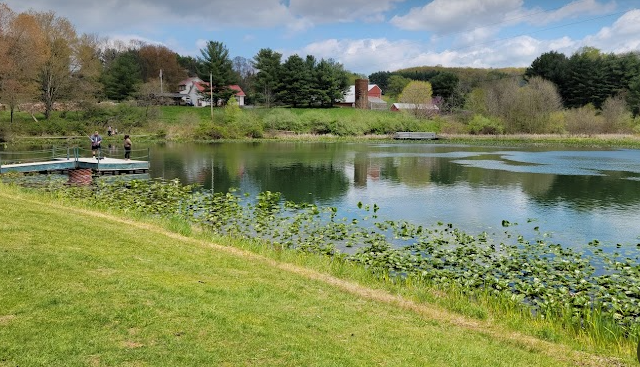“With its tidy housing developments-and several more new neighborhoods on the way-this town is part suburb. But with its quaint small downtown and lack of fast-food restaurants, Manchester retains its small-town atmosphere.
Manchester began (circa 1760) as a harmonious blend of English and German cultures, indicated today by the English name of the town and by old tombstones in the cemetery inscribed in German. It developed an atmosphere of local pride and cooperation still evident in the neatness of the streets, homes and yards, and in many cooperative enterprises such as the volunteer Fire Company, “Christmas Tree Park”, “Charlotte’s Quest Nature Center”, a community swimming pool, and strong churches. A Lutheran church was erected in Manchester in 1760 as the first place to worship in Carroll County. That church’s direct descendent is Immanuel Evangelical Lutheran Church, founded in 1862 and located on Church St. A large white oak, older than the church, stands beside it and is considered the town symbol and town tree. Manchester’s existence has always been closely related to the agriculture of the district. Growth of tobacco in the area years ago led to the development of an extensive cigar manufacturing business (now gone). A bank, an insurance company, and several service stores, all locally inspired, have catered to rural needs. More recently, commuters to Hampstead, Hanover,Westminster, and Baltimore have established their homes in the relatively peaceful and neighborly a”tmosphere of Manchester.
At one time, an iron mine was opened near Melrose (north of Manchester) which was thought to have such potential that a spur railroad was built at the site. However, the ore proved to unprofitable and both rail line and mine have disappeared. There was even an iron foundry in Manchester in the early days.”


